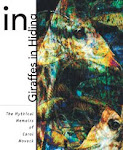For those who think the Holocaust could never happen again, a deluded and dangerous mindset.
Reviewing the Holocaust Anew in Multiple Contexts*
Yehuda Bauer
Published April 2009 Institute for Global Jewish Affairs
No. 80, 1 May 2009 / 7 Iyar 5769
" ● The Holocaust needs to be seen in its various contexts. One is that of Jewish history and civilization, another is that of anti-Semitism, a third is that of European and world history and civilization. There are two other important contexts: that of World War II and that of genocide, which are interconnected.
● The nonpragmatic character of the genocide of the Jews is one of the elements that differentiate it from other genocides. Other elements were the totality, that is, the desire to annihilate every single Jew defined as such by the Nazis; the universality, namely the idea, developed in stages, that Jews everywhere should be treated the same way that they were being treated in Nazi Europe; and the fact that special industrial enterprises were set up, in the death camps, for the purpose of producing (Jewish) corpses - an unprecedented historical fact.
● Today for the first time since 1945, Jews are again threatened, openly, by a radical Islamic genocidal ideology whose murderous rantings must be taken more seriously than the Nazi ones were. The direct connection between World War II, the Shoah, and present-day genocidal events and threats is more than obvious. The Shoah was unprecedented; but it was a precedent, and that precedent is in danger of being followed.
● National Socialism and Stalinist communism differed. National Socialism was a conscious rebellion not just against the heritage of the Enlightenment, but against all the norms and traditions of Western civilization. Its utopia was a racist hierarchy, not any sort of egalitarianism. Soviet ideology, however, was based on the Marxist legacy, which promised a classless utopia of ideal egalitarianism, the abolition of the class-based state, and full democracy with individual rights; the yawning gap between ideology and murderous practice was a characteristic of the regime. The major differences, as well as the parallels, between the two totalitarianisms have not been adequately explored.
The Holocaust needs to be seen in its various contexts. One is that of Jewish history and civilization, another is that of anti-Semitism, a third is that of European and world history and civilization. There are two other important contexts: that of World War II and that of genocide, which are interconnected.
Without the war, it is unlikely there would have been a genocide of the Jews; the war developments were decisive in the unfolding of the tragedy. Conversely, it is increasingly recognized today that while one has to understand the military, political, economic, and social elements as they developed during the period, the core of the world war, regarding its overall cultural and civilizational impact, were the Nazi crimes, and first and foremost the genocide of the Jews. If so, the relationship between the Holocaust, in the context of the war, and other genocides or forms of genocide is crucial to the understanding of that particular tragedy, and of its specific and universal aspects.
Thus, a triangle of contexts needs to be discussed, with the Shoah at its center, and World War II and genocide as the necessary backgrounds. Otherwise an understanding of the Shoah is difficult to achieve. . . . .
It is clear to all that the Shoah was a genocide, and as such it not only can, but must be compared with other genocides. Only then can it be determined whether it was different, and to what extent. Uniqueness generally means a onetime thing. If that is what the Shoah was, then it would never happen again, to anyone; it then would become irrelevant for the present and the future, and could be safely regulated to yearly liturgical observances, memorials, and the spouting of worn-out clichés, as our politicians are wont to do. Moreover, every historical event is unique, every people and their fate are unique.
If the Holocaust was unique in that sense, then it was just like any other event in human history, no different from the uniqueness of the British Empire, the Napoleonic Wars, or the fate of India under the Moghuls. Paradoxically, then, the Shoah would then be like any other historical occurrence-nothing special. Uniqueness turns into its opposite, total trivialization. No, the Shoah was not unique. It was unprecedented; a genocide like that had never happened before. But it can, and to a certain extent already has, become a precedent. It can happen again, to Jews or to others, perpetrated by anyone to anyone; not in exactly the same way, but in parallel and approximately similar ways."
PLEASE READ THE ENTIRE ARTICLE (title link at top)
PLEASE ALSO READ The Christian Science Monitor's essay concerning the impotence of the United Nations Convention on the Prevention and Punishment of the Crime of Genocide: Darfur reinforces the impotence of this UN mandate.
Thursday, July 23, 2009
Subscribe to:
Post Comments (Atom)




No comments:
Post a Comment